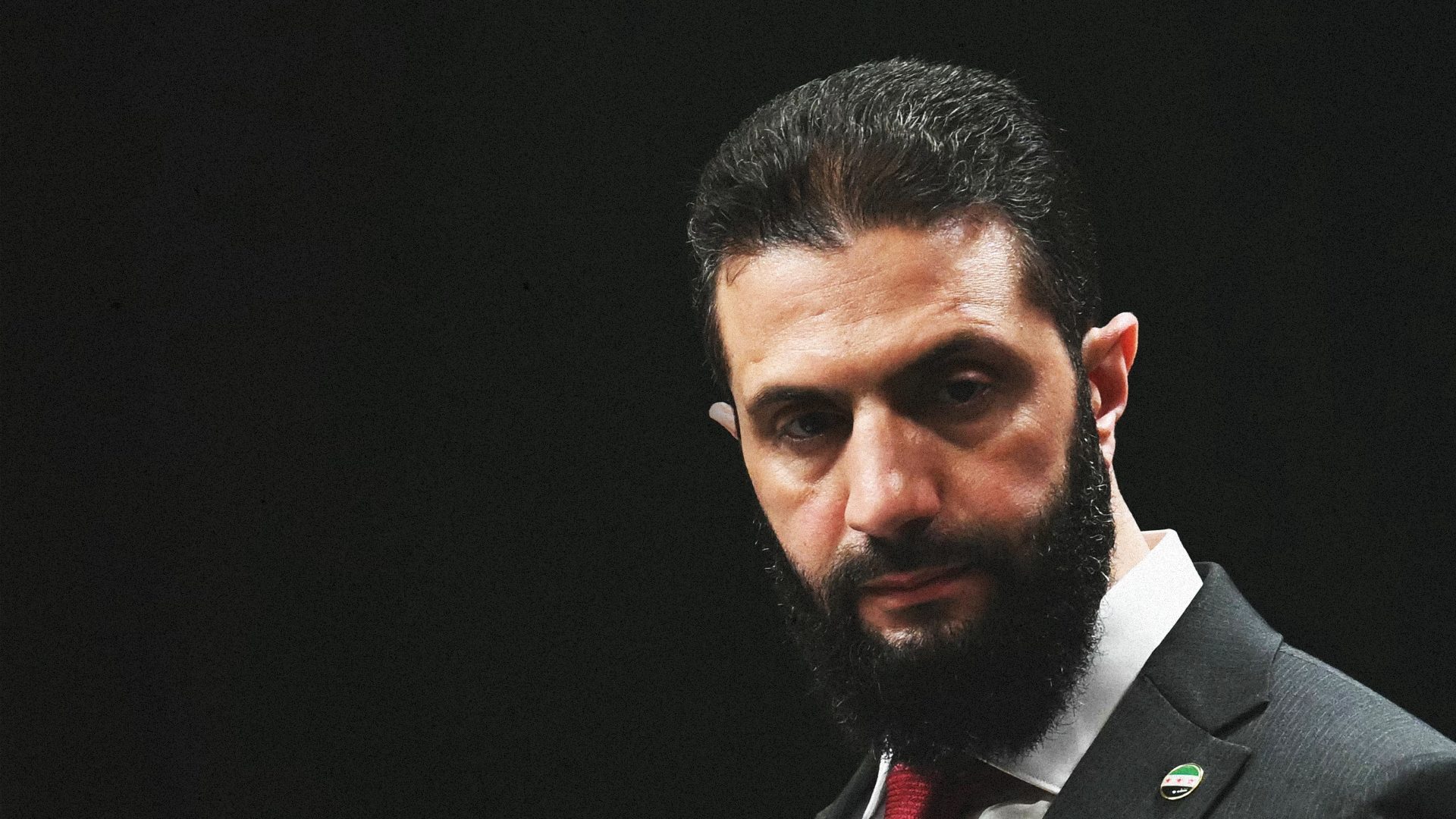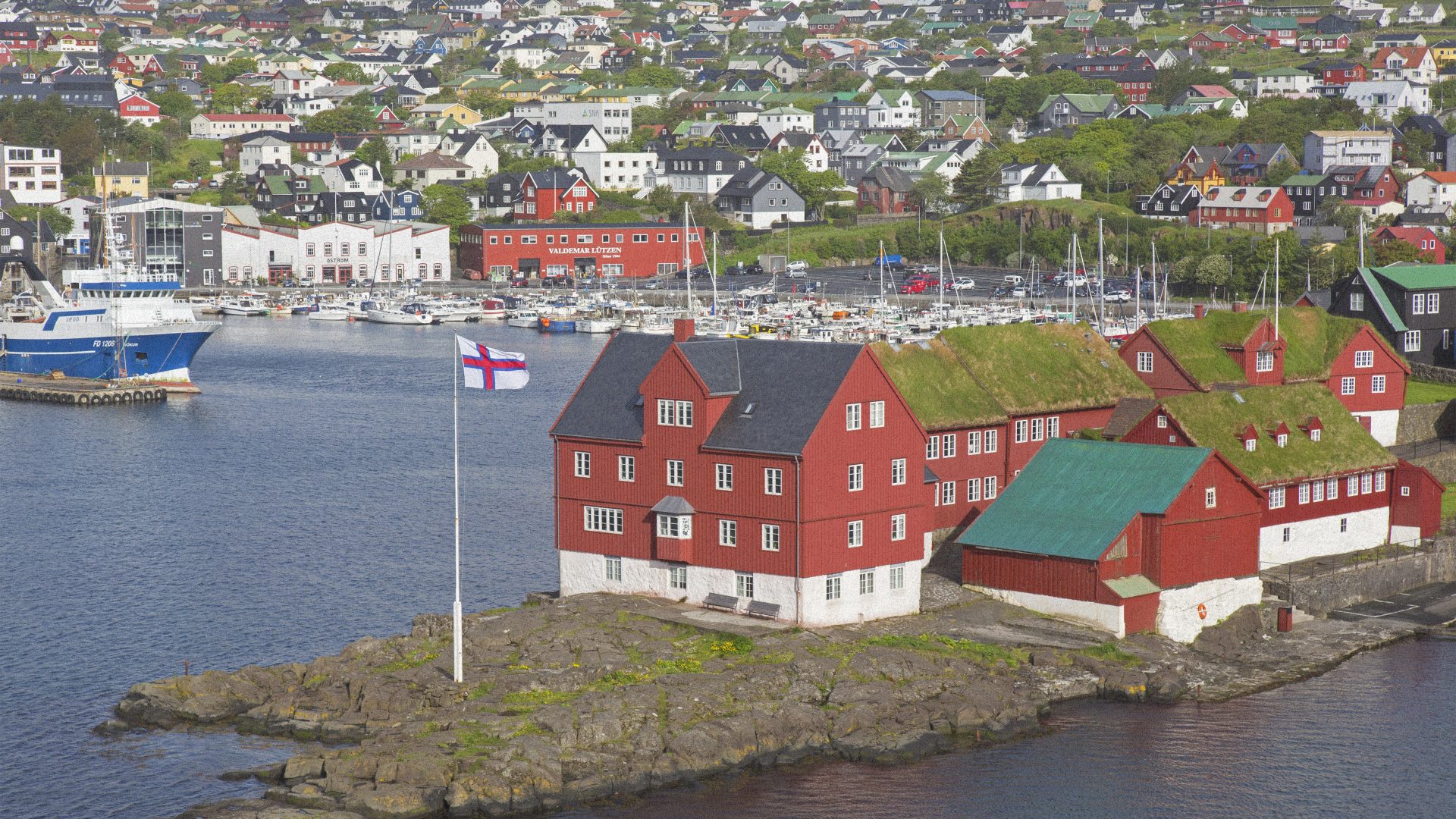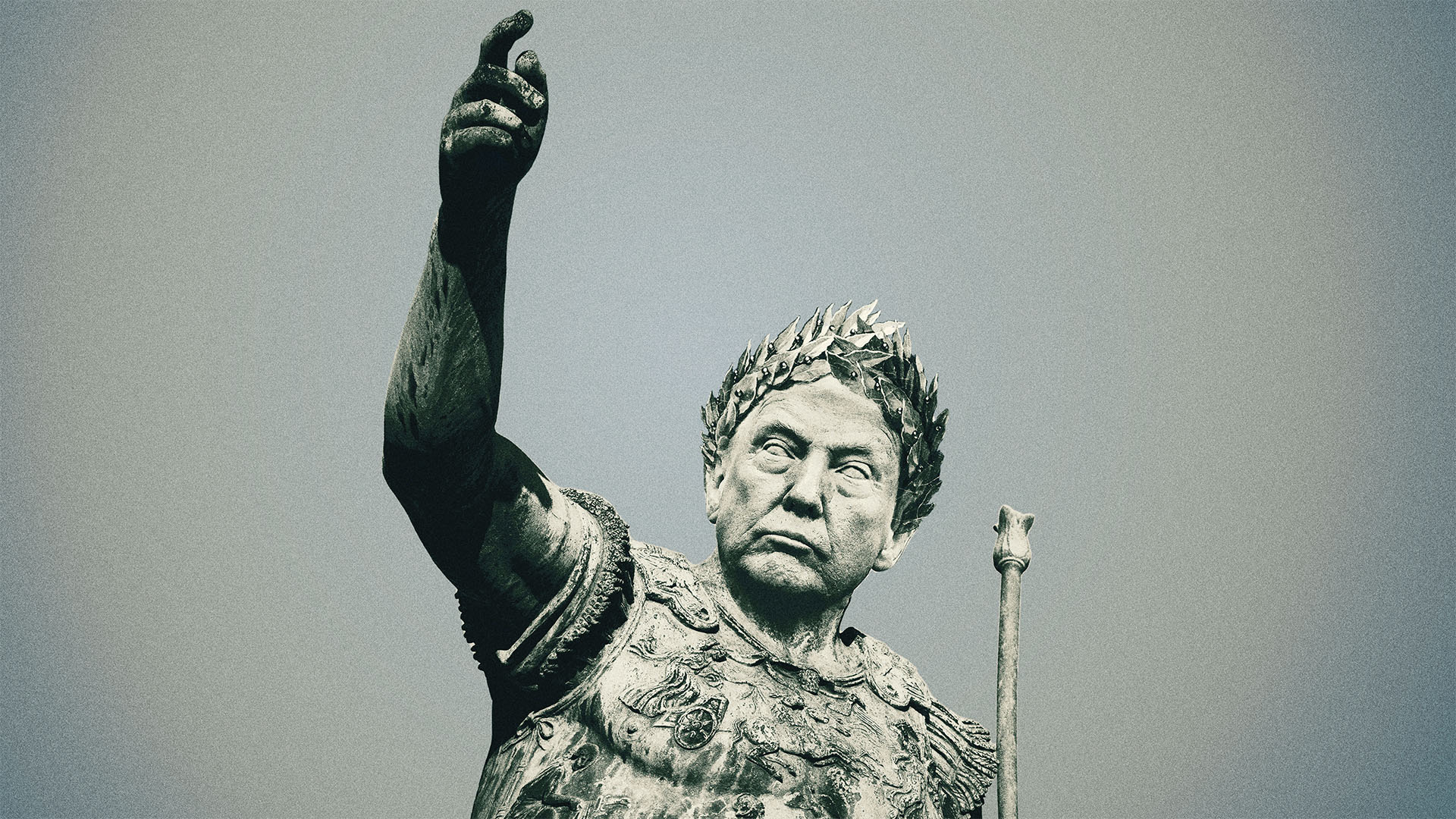It is not that long ago in historical terms, less than a couple of decades, that I was strongly advised to turn down an invitation to do a Middle East speaking tour, which would have included Iraq and Syria. A man from something called “The Central Unit”, which looked after people thought to be vulnerable to terrorist attack, Northern Irish or Middle Eastern, could not have been clearer: “You must be mad. Don’t even think of it. We cannot guarantee your safety.”
My podcast partner, Rory Stewart, who in an earlier incarnation was a post-Saddam Hussein deputy governor of the Iraqi province of Maysan, came face to face with the dangers when his HQ came under attack from a gang of fighters linked to al-Qaida, who were repelled by US and UK special forces.
So it was quite a moment to be sitting in a huge palace in Damascus, chatting happily with Ahmed al-Sharaa, who might well have ordered the attack, and whose various al-Qaida/Islamic State/al-Nusra/(delete where applicable) organisations were the reason I was advised against travelling.
After 15 years of war, and the recent collapse of the Assad regime, official Foreign Office advice remains not to go here, but a few calls to a few people assured us that “you would have to be very unlucky” for anything bad to happen. A British security official advised: “They are trying to show a different face to the world. They will make sure nothing goes wrong.”
And so, instead of seeking to wipe out the No 10 comms man who took so much of the blame for the war in Iraq (the one that led al-Sharaa to go and fight, ending up in American-run jails for five years for his troubles) and the Old Etonian British official given colonial-style powers over vast areas of the country once Saddam was gone, it seems we were now being looked after by him. Strange times.
From terror leader with a $10m bounty on his head, to head of a country of 23 million, with world leaders lining up to meet him; from warrior in battle fatigues two months ago to the smartly dressed, gently smiling president who greeted us in the vast palace until recently occupied by the dictator Bashar al-Assad and his hated British-born wife, Asma.
He had just returned from a visit to Saudi Arabia. We had been on standby all day, hoping to see him at 3pm, but as the day wore on, and the “still in Saudi” messages piled up, we feared postponement or cancellation.
However, his plane landed at 9pm, and by 10.30pm the interview began. Midnight came and went, and we were still talking.
I suppose the question we were probing was one confronted many times during the Northern Ireland peace process: is it possible for someone who had been so sure that fighting, up to and including car and suicide bombings, was the way to achieving their goals, now to be just as sure that peaceful means are far, far better? Can a man of violence be a man of peace? It is barely possible to make that judgement on one meeting, even one that ran into the early hours.
As you will hear if you listen to the interview, he is definitely saying a lot of the right things. The scale of his victory is immense; the scale of the challenge in a shattered country is even greater. Right now, virtually everyone you meet says they feel happier than they did under Assad.
But we also drove through the Bekaa Valley and saw the shanty towns made of scraps of UN sheeting that have housed some of the million Syrian refugees in Lebanon over the last 14 years. Children have lived their whole lives in these tents.
There are six million Syrians outside the country – mostly in Lebanon, Jordan and Turkey – thinking of returning to their towns and villages, many of them destroyed. In Damascus, we found youth unemployment off the scale, public services close to collapse, nine out of 10 living in poverty, inflation so rampant that we needed a plastic bag to carry the $300 worth of Syrian pounds to pay the film crew.
The capital felt virtually unpoliced, Assad’s security forces having largely vanished, while there is also a not inconsiderable security threat from camps housing thousands of men still committed to the jihadist cause, (some of whom would no doubt like to see al-Sharaa taken down and out).
So there is a huge amount on the presidential plate. All the more remarkable, then, that at the end of a ridiculously busy day, he still found time to see us, and seemed pretty calm, reasonably confident, and with no illusions that he has one of the toughest jobs on the planet.
The interview took place in what Assad laughably called “the Palace of the People,” on Mount Mezzeh, West Damascus (main building 340,000 sq ft, premises overall 5.5m sq ft, presidential hospital included). The palace was the place where Assad famously, after a reasonably polite meeting with Tony Blair, launched into a vicious attack on him when meeting the media later. Thereafter we referred to any unwanted verbal onslaught as “doing an Assad”, or “going full Assad”.
The security checks to get in were even greater for al-Sharaa than for Assad, and I couldn’t help wondering, and indeed asked him, how weird it must feel to have gone from the life he had to the one he leads now. I find it hard to imagine he likes living there. There is only so much marble any one person can take in.
We entered a football pitch-sized hall, thick red carpet running through the middle of it, huge upturned silver domes hanging from the ceiling. What awful taste the Assads had. I would love to know whether their new Russian abode is as large, or as gaudy.
I would love to get them on the podcast, too. If anyone bumps into them in exile, please pass on the message. After all, we landed al-Sharaa by saying on the podcast that we would like to.
Unsurprisingly, overseas tourism has virtually collapsed, which is a shame, because there is so much to see and do; the old city, which has a claim to be the oldest city in the world – continuously inhabited for 7,000 years; beautiful mosques and churches, wonderfully colourful markets, plenty of war tourism if that rocks your boat. But the two most powerful impressions left on me were of people’s resilience, especially the children, who seem to find so much to smile about, and warmth.
Twice we tried to buy things for which the seller didn’t want to take money. And I lost count of how many times people just said the simple word “welcome” on seeing the two of us walking along.
One big blot on the Syrian landscape, however… smoking. With the zeal of a convert, as a former heavy smoker I now cannot bear to be anywhere near it. In Damascus, it is hard not to be.
At breakfast this morning, at the next table were six men, five of whom seemed to be involved in a chain-smoking contest. One ate a huge omelette, fork in one hand, cigarette in the other, drawing on the latter as he chewed mouthfuls of the former.
Of the many great things the New Labour government did, banning smoking in workplaces was right up there. Thankfully there seemed to be no smoking allowed in the room where we interviewed the president. I hope this is the first step on the road to his introducing a similar ban in Syria, then a holiday might follow.




